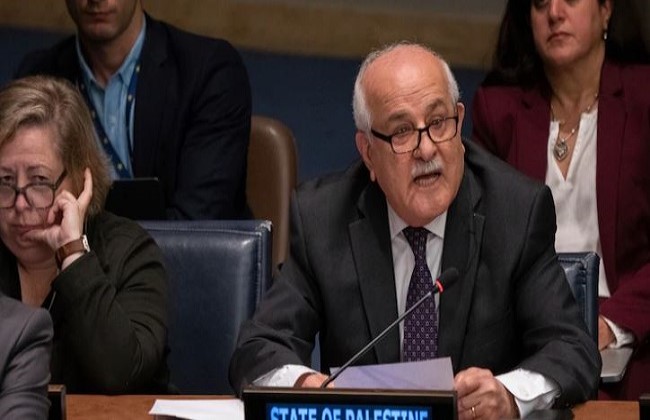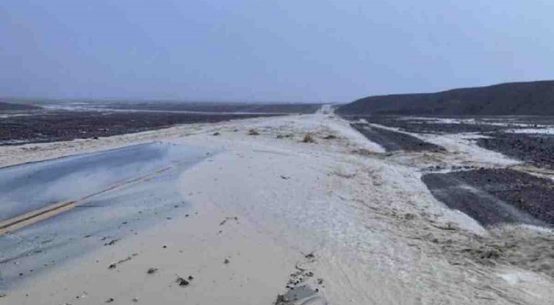
The U.N. General Assembly has asked the U.N.’s highest judicial body to give its opinion on the legality of Israeli policies in the occupied West Bank and east Jerusalem.The Assembly voted by a wide margin, but with over 50 countries abstaining, on Friday evening to send one of the world’s longest-running and thorniest disputes to the International Court of Justice, a request promoted by the Palestinians and opposed vehemently by Israel.
While the court’s rulings are not binding, they influence international opinion. It last addressed the conflict in 2004, when the Assembly asked it to consider the legality of an Israeli-built separation barrier. Palestinian Ambassador Riyad Mansour thanked countries that backed the measure. “We trust that regardless of your vote today, if you believe in international law and peace, you will uphold the opinion of the International Court of Justice, when delivered,” Mansour said, going on to urge countries to “stand up” to Israel’s new, hard-line government.
Israel didn’t speak at the Assembly, which voted during the Jewish Sabbath. In a written statement beforehand, Ambassador Gilad Erdan called the measure “outrageous,” the U.N. “morally bankrupt and politicized” and any potential decision from the court “completely illegitimate.” Israel captured the West Bank, east Jerusalem and Gaza Strip in the 1967 Mideast war. The Palestinians seek all three areas for an independent state.Israel considers the West Bank to be disputed territory and has built dozens of settlements that are now home to roughly 500,000 Jewish settlers.
It also has annexed east Jerusalem and considers the entire city to be its capital. An additional 200,000 Israelis live in settlements built in east Jerusalem that Israel considers to be neighborhoods of its capital. Palestinian residents of the city face systematic discrimination, making it difficult for them to build new homes or expand existing ones.The international community overwhelmingly considers the settlements to be illegal. Israel’s annexation of east Jerusalem, home to the city’s most sensitive holy sites, also is not internationally recognized.
Israel withdrew from Gaza in 2005. Two years later, the Hamas militant group seized control of the territory from the forces of internationally recognized President Mahmoud Abbas.Friday’s resolution asked the International Court of Justice, commonly known as the world court, to issue an advisory opinion on the legal consequences of It also asked the court to look at the legal consequences of Israeli measures it said are “aimed at altering the demographic composition, character and status of the Holy City of Jerusalem.”
And it asks for an opinion on how all Israeli policies affect the legal status of its occupation, “and what are the legal consequences that arise for all states and the United Nations from this status.” The vote was 87-26, with 53 abstentions. It followed approvals of the draft resolution in the assembly’s budget committee earlier Friday and in the Special Political and Decolonization Committee on Nov. 11.
Israel carried out widespread behind-the-scenes lobbying efforts against the measure and decried the Assembly for voting after the Sabbath began Friday evening. Ahead of the vote, outgoing Prime Minister Yair Lapid personally contacted about 60 world leaders while figurehead President Isaac Herzog spoke to many counterparts, according to an Israeli diplomatic official who spoke on condition of anonymity because he was discussing private diplomatic efforts.
The United Nations has a long history of passing resolutions critical of Israel, and Israel and the U.S. accuse the world body of being unfairly biased. Israel has accused the Palestinians, who have nonmember observer state status at the United Nations, of trying to use the U.N. to circumvent peace negotiations and impose a settlement.

